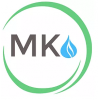Business Type:Manufacturer
Country/Region:United States
Ddu Verified
HOT Rank


MK Fluidic Systems
We are professional supplier of Syringes,Valves,Tubing & Fittings.
Business Type:Manufacturer
Country/Region:United States
Ddu Verified
HOT Rank

For over 30 years, the management of MK Fluidic Systems has understood that the most important aspect of a syringe is the glass. There are numerous options for seal materials and configurations, but the syringe’s performance will always be heavily impacted by the quality of the glass barrel.
Our highly skilled team members operate specialized machinery to ensure that each glass barrel will have CV’s of ±.05 at 1/10 the volume of the syringe. Optical screening is also used to inspect for defects that would impact the performance of the syringe. A final proprietary polishing step ensures that the bore of the glass is as smooth as possible, to improve the life of the syringe.
O.E.M. SyringesMK Fluidic Systems designs and manufactures syringes for the OEM market place for the customers specification needs with different plunger rod assemblies, end cap configurations and with or without guides.
Hamilton PSD Syringes & Valves
We are now proud to offer compatible replacement syringes and valves for the PSD syringe pump. These products are made using highly inert and stable materials to maximize accuracy and performance over their long life-cycles. Our valves are available with both PEEK and PCTFE bodies, with seal materials choices of highly inert virgin PTFE and durable UHMW-PE. Replacement syringes are also available with either PTFE and UHMW-PE plunger tips. The PSD syringe line is capable of sealing at temperatures as low as 0°C and at pressures as high at 500 PSI.
Peek SyringesPEEK syringes can be used where stainless steel syringes are not as chemically compatible. The interness of the plastic and the thermal stability make this a great material for highly corrosive applications.
Low Temperature SyringesThese syringes are designed with very low cross sections where the sealing band meets the glass, to minimize the coeffieicent thermal expansion of the thermal plastic and can operate well at tempertures as low as 0° F.